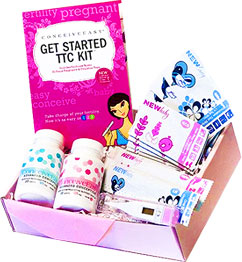![]() The information provided by our expert should not constitute a diagnosis of your condition. Always consult a medical practitioner or healthcare provider for a formal diagnosis. By making use of this content, you agree that ConceiveEasy and the expert assume no liability.
The information provided by our expert should not constitute a diagnosis of your condition. Always consult a medical practitioner or healthcare provider for a formal diagnosis. By making use of this content, you agree that ConceiveEasy and the expert assume no liability.
Infertility is such a difficult thing for women to deal with. It’s not something that is anyone’s “fault,” or anything that you can control, so it is very frustrating. It is easy to feel helpless when dealing with infertility and sometimes we just wish there was a magic fertility pill for women to make it all better. But maybe there is? Claim Your 20 Free Pregnancy Tests – Click Here
While there is no magic fertility pill, there are a few fertility pills on the market today that can make things a little easier, hopefully, when you’re figuring out how to get pregnant. Remember, when reading this article that none of these pills discussed today are a magic cure for infertility, and your results may vary when trying with any of them.
List of Fertility Drugs and Supplements

Clomiphene or Clomid
Clomiphene is most commonly known as Clomid or Serophene, those are its brand names. Clomid is the most commonly used fertility drug in the USA, and its success is probably the greatest. Clomid works by stimulating your body into producing more eggs, making it more likely for you to get pregnant. The side effects of Clomid are usually pretty minor and for the most part it is well tolerated in women.
Clomid is probably most widely known for increasing the chances of having twins. Taking Clomid will give you somewhere around a 10% chance of having twins. Clomid is usually taken in pill form for one five day cycle per month. Your doctor will most likely not recommend taking Clomid for more than six cycles. After that you will probably be switched to another fertility treatment method if it doesn’t work after that.

Letrozole or Femara
Letrozole is also known as Femara. Much like Clomid, Femara is taken five days per month, and helps in inducing ovulation. The difference is that Femara usually has fewer of the minor side effects associated with Clomid. The multiple birth rate with Femara is also a little lower than with Clomid, coming in at about 7%. If you don’t respond to this type of drug, your doctor might want to move onto trying a different approach that doesn’t need to be taken orally.
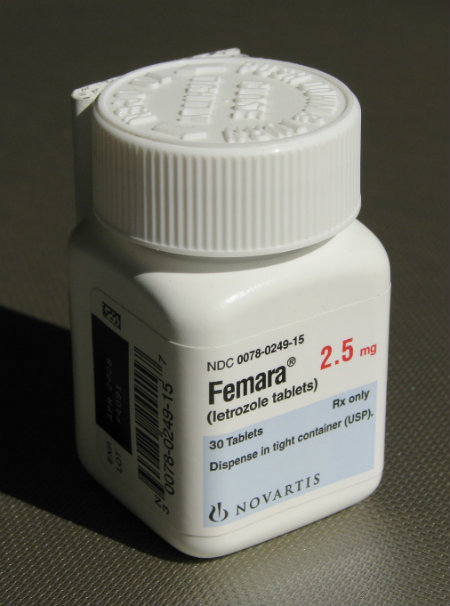
Metformin or Glucophage
Metformin is also known as Glucophage. You might have heard of this medication as being used for diabetes patients. Since it reduces insulin levels, it is usually used in patients with PCOS, to induce ovulation. It is sometimes used in combination with other medications. Some doctors believe that using Glucophage for infertility can also help reduce the risk of miscarriage, but research on this is ongoing. The main side effects of Glucophage are usually stomach related issues, like diarrhea and nausea.

ConceiveEasy Fertility Pills
ConceiveEasy are non-prescription pills that help increase fertility in women. These pills have amazing properties that not only help with regulating cycles and stimulating ovulation, but they help increase cervical mucus and keep hormonal levels balanced. ConceiveEasy is completely natural and has helped many women conceive and carry healthy pregnancies to term.
Herbal Fertility Supplements
Many couples who are facing infertility may not want to run to the doctor right away and would prefer to go to a naturopathic doctor that can help with boosting fertility in both men and in women. There are herbs that are safe to take that are specifically meant to help improve fertility. Let’s go over some of these powerful herbs right now that have been proven to help improve fertility among many couples.
-
Maca
Those who are struggling with infertility or who want to boost their fertility can enhance their chances of ovulating and helping to regulate their hormones as well. In fact, one powerful fertility herbal supplement is Maca, which is also called Lepidium meyenii. Maca is a root-like cruciferous vegetable that is found on the Andes mountains in Peru.
In fact, Maca is the only food crop that can grow in harsh weather and at high altitudes, and for over 2000 years, Peruvians have used Maca to enhance their fertility, libido, and energy. They had discovered long before modern medicine was a thought that Maca did help with fertility-related issues.
Maca has been studied since 1961 and has been found to have many healing properties such as supporting thyroid and hormonal balance, helping to provide more energy, and helps improve libido. In fact, both men and women benefit from the properties that Maca provides, as it helps to regulate and support the endocrine system.
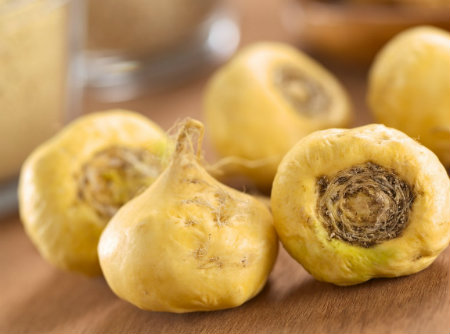
For women, Maca helps regulate normal estrogen and progesterone levels since levels that are too high or too low of these hormones will not only prevent pregnancy from happening but will affect ovulation. Therefore, Maca helps to promote healthy levels for both types of hormones.
Maca comes in capsules, powders to add to food such as smoothies and baked good, and in tinctures as well.
-
Vitex
Vitex is another excellent fertility herb that many women have used over the years. Vitex is a lovely shrub that is found in Italy and Greece, and the berries from the shrub have been used for medicinal purposes for centuries. After years of research, it has been proven that Vitex contains properties to help balance hormones and to boost fertility levels as well.
Vitex is a great herb that helps promote the luteinizing hormone (LH) which also helps improve progesterone levels, and lengthens the luteal phase. That is important in order for implantation to take place. This is an excellent herbal remedy that helps women who have luteal phase defects. This also means that this herb helps reduce miscarriages.
This herb also is great for preventing advancement of mild endometriosis, and gynecologists in Germany have been prescribing drugs with Vitex in it to their patients to prevent endometriosis from worsening.
Vitex is also great for helping to regulate menstrual cycles, reducing PMS symptoms, and is great for reducing uterine cysts as well. Women with PCOS have also been helped by Vitex. This herb comes in capsules and in tinctures.
-
Red Clover Blossoms and Leaf
Red Clover is also a great fertility enhancing herb, which is also referred to by its scientific name as Trifolium pratense. This herb is full of helpful nutrients and minerals and is a blood detoxifier. Red Clover is great to help balance hormones, help to aid digestion and liver function. Red Clover can be taken in tea or as an infusion.
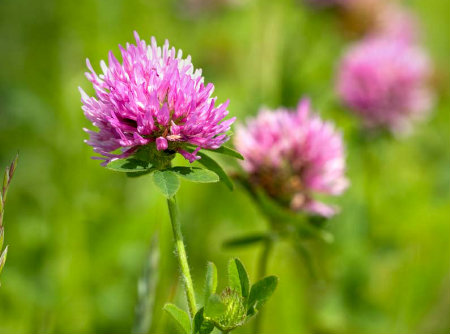
-
Red Raspberry
Red Raspberry is a great herb to help boost egg quality and to help treat anemia. The scientific name for this herb is Rubus idaeus and it is rich in iron and in other important nutrients. It also helps strengthen the uterus and helps manage bleeding, especially if it is excessive. In fact, this herbal remedy is given to women who have miscarried so help control bleeding, as well as to women who have given birth naturally or by C- section for the same reason.
Red Raspberry is safe to consume throughout the pregnancy as well, as it helps to keep the uterus strong and helps it prepare for labor as well when the time comes. It can be used as a tea or nourishing infusion form.
-
Ashwagandha
Ashwagandha or Withania somnifera is a great herb that helps to regulate and restore thyroid and adrenal gland function in both men and women. It helps ovulation happen for women and helps men with their sperm counts. Ashwagandha is also fantastic for improving sleep patterns which is important to help support endocrine function in general. A lack of sleep does a lot of harm and is quite detrimental for fertility.
-
Motherwort
Motherwort or Leonurus cardiaca is an herbal remedy that midwives have used for their patients over a long period of history. Motherwort has healing properties that help reduce symptoms of PMS and helps regulate menstruation, helps manage symptoms with endometriosis and fibroid cysts.

This herb also helps calm depression and anxiety, but cannot be taken during pregnancy because it can stimulate mild contractions. It is best to be taken before conception since it is a uterine tonic, and midwives have given this to pregnant women who are overdue as well. That is the only time during pregnancy Motherwort can be taken. This herb is usually taken as a tincture.

Vitamins
In addition to excellent fertility herbal remedies, there are many vitamins that can help boost fertility in men and women that are found in the foods that you eat every day. Let’s go over these vitamins now and see how they can help, and what foods they are found in as well.
-
Zinc
Zinc is an important mineral that men and women need to consume as it helps to stimulate ovulation in women and helps increase sperm count, and sperm quality in men. Men should take 11 mg of zinc a day, and women should take 8 mg of zinc. Foods that are rich in zinc are oysters, crab, lobster, whole-grains, and dairy products.
-
Folic Acid
Not only is folic acid important to take to help prevent neural tube defects in the unborn baby, but it helps promote fertility as well. Women need to take 400 micrograms of folic acid a day at least, and men should take 700 mcg as well. Men who take folic acid are more fertile as it helps increase sperm production. Foods that are rich in this B-vitamin are leafy greens, citrus fruits, and whole grains.
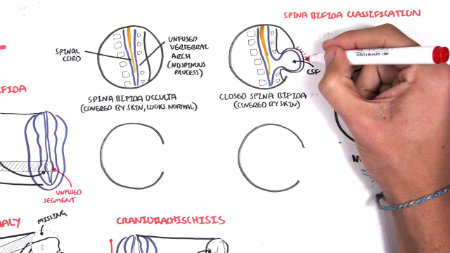
-
Iron
Iron is important for women to take before they are trying to get pregnant and need to increase the intake after the pregnancy as well. Iron makes hemoglobin, which is the component of red blood cells that carry oxygen. If there is not enough hemoglobin, then fertility will suffer. Foods that are rich in iron are dark leafy green vegetables, red meat, and tofu.
-
Omega 3 Fatty Acids
This is extremely important for women to take which helps regulate hormonal levels and helps induce ovulation, and regulate cycles. You can get this in salmon and other fatty fish (but keep away from fish that is high in mercury levels such as King mackerel, orange roughy, tuna steaks, shark meat and swordfish as that can be detrimental to your fertility). It is also found in nuts, avocados, and eggs as well.
-
Calcium and Dairy Fats
Dairy fats help regulate hormonal levels and help stimulate ovulation, and Calcium keeps bones strong. It is best to only stick to full-fat dairy foods like whole milk, full-fat yogurt, and hard cheeses.
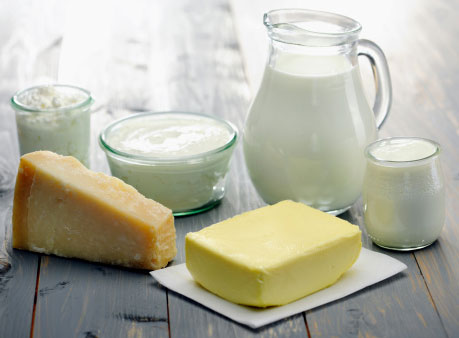
-
Coenzyme Q10 Supplements
Coenzyme Q10 has been found to help boost sperm count in men as well as improve egg quality in women. This enzyme is produced by the body but needs supplementation as well. The recommended daily dosage is between 30 – 200 mg.
-
Vitamin B6
Vitamin B6 is crucial for women to take before they start trying to conceive. Not only does it help increase the luteal phase, but it also helps reduce symptoms of morning sickness after conception happens. It is a great idea to take B6 supplements.
Other important vitamins that you and your partner need to help with improving fertility are all of the B-vitamins, Vitamin C, VItamin D, antioxidants, and for men, L-carnitine as it boosts sperm quality and quantity. It is also important to take a folic acid supplement in addition to a prenatal vitamin which has all of these excellent vitamins and minerals to help boost fertility and to help increase the odds of a healthy pregnancy.
However, even while taking any fertility enhancing pill, herbal remedy, vitamin, as well as ConceiveEasy, you need to eat a balanced diet, limit the sugar intake, get moderate exercise, manage your stress levels in order to increase your chances of conceiving dramatically! Best of luck!


